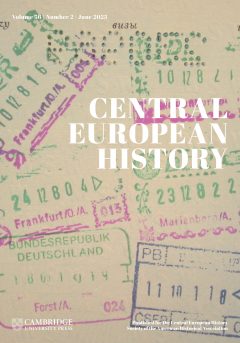Jennifer Evans and Carleton MA Danielle Carron publish article on settler colonialism and Canadian far-rights

The latest issue of Central European History includes an article jointly written by Jennifer Evans and recent MA Danielle Carron together with Carleton sessional lecturers Swen Steinberg and David Y. Clement. In “Settler Colonialism, Illiberal Memory and German-Canadian Hate Networks in the Twentieth and Twenty-First Centuries,” the authors argue that “there is great compatibility between the settler colonial project and the illiberalism of the far-right.” They suggest that “recognizing some of these shared values nudges us to think more deeply about the relationship of liberal democracy to white supremacy, populism, and fascism.”
This article is part of the collaborative research project Populist Publics (www.carleton.ca/populistpublics) overseen by Evans and Sandra Robinson in Communications. It applies a data-driven analysis of online hate networks to trace how false framings of the historical past, what we call historical misinformation, circulates across platforms, shaping the politics of the centre alongside the fringes. Researchers cull large datasets from social media platforms and run them through a variety of different programs to help visualize how harmful speech and civilizational rhetoric about race, ethnicity, immigration, multiculturalism, gender equality, and LGBTQ+ rights are circulated by far-right groups across borders, noting specifically when and how they are taken up in the mainstream as legitimate discourse. The aim is to document how the distortion of the historical record is used to build alternative collective memories of the past so as to undermine minority rights and cultures in the present. This article begins with a basic question: To what extent is this actually new? As much as the atomized publics of our current day create ideal conditions for radical ideas to fester and circulate, Evans et. al argue that we need to look for linkages across time, drawing on interdisciplinary methods from the fields of history, media and communication, and data science to identify the tactics, strategies, and repertoires among such groups and individuals. By analyzing German-Canadian relations in particular, this article pieces together some of these connections, with a focus on far-right hate groups—homegrown and imported—in the settler colonial project that is today’s Canada.
The article is available here: https://doi.org/10.1017/S0008938923000432